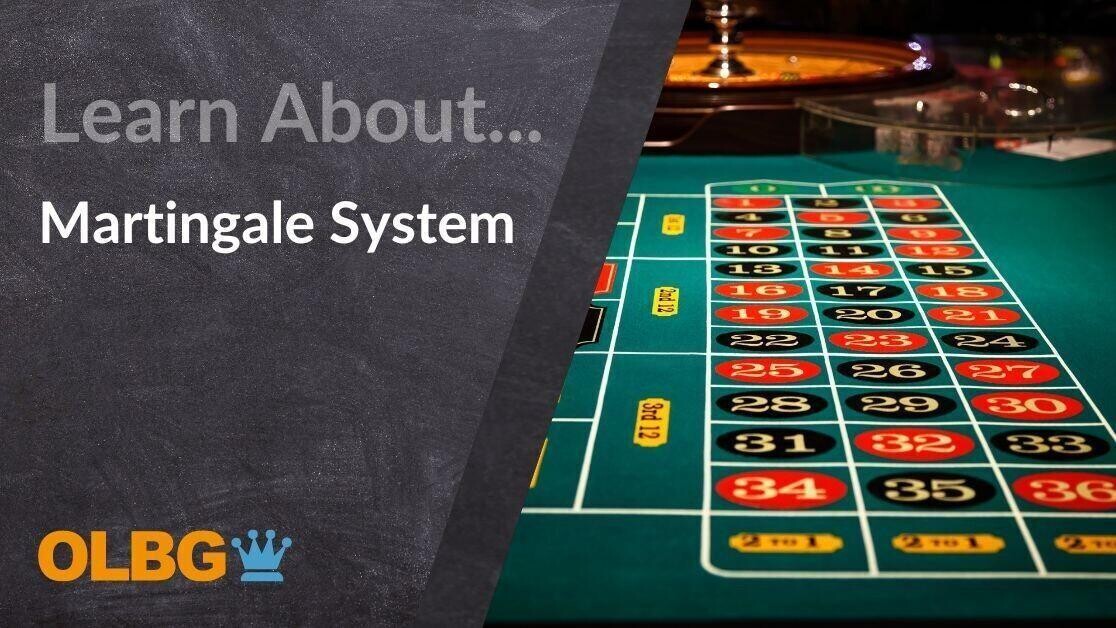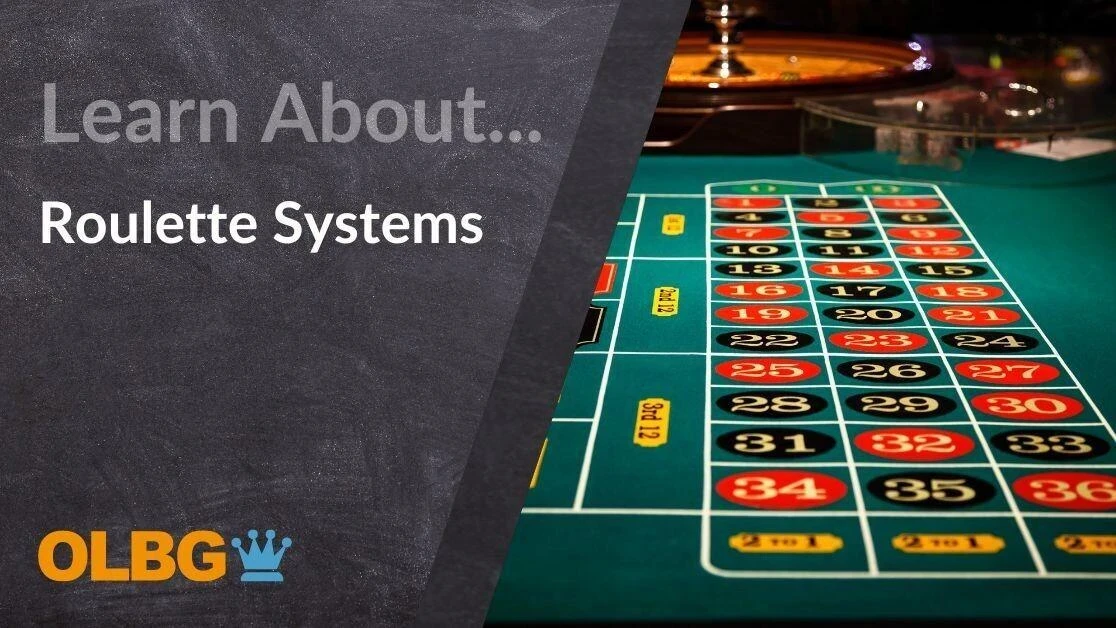
I've spent over 20 years inside the betting industry. I'll guide you to avoid the hype, ignore the noise, and steer clear of the common pitfalls that catch out everyday punters.
Roulette, with its elegant wheel and mesmerising spin, has been captivating online casino players for decades and physical casino sites for much longer. Its blend of simplicity and excitement has seen the game transcend from the glittering casinos of Monte Carlo to the digital domain of online gaming.
Roulette Systems and Strategy
However, beyond its inviting allure lies a complex game with endless possibilities. It's here that Roulette systems and strategies become pivotal. These methods of play, tried and tested by generations of players, aim to manage risk, maximise potential returns, and add structure to what can otherwise be a whirlwind of chance.
With understanding and correct implementation, they can provide structure to your Roulette experience, although each spin remains a gamble, the odds against you and no system can turn the edge in your favour. In this guide, we delve deep into these systems, offering options against random number and wager selection.
Understanding the Roulette Table
The roulette table layout is split into two key areas - the wheel and the betting board. The wheel features numbered slots, ranging from 0 (and 00 in American Roulette) to 36 in alternating red and black colours. The betting board showcases these very numbers in a grid, accompanied by other betting options.
Also read Roulette Rules and How to Play
American and European Roulette tables are quite similar but with distinct differences. The American table comes with both a single zero (0) and a double zero (00), which increases the house edge. On the other hand, the European table includes only one zero (0), which helps players to have slightly better odds in comparison.

La Partage and En Prison Rules: Boost Your Online Roulette Strategy
Understanding the layout is the first step, but to raise your game, exploring options like 'Basic Roulette Betting odds' and 'Advanced bets like La Partage and 'En Prison' is fundamental. These strategies delve into the opportunities that these diverse layouts present, enabling players to make more informed decisions that align with their risk tolerance and playing style. Remember, knowledge is key in the deceptively simple, yet profoundly complex game of roulette.

📊 Roulette Odds: Payouts and Probabilities Guide
So, with the basics out of the way, let’s move onto some popular staking and roulette betting systems.
Overview of Roulette Systems
The roulette game with any system, strategy or approach remains reliant on luck. It thrives on strategies, techniques, and systems designed over centuries, each promising a different approach gameplay with the hope of turning the tide of fortune in your favour.
The three most common roulette betting systems that you’re likely to encounter, are the most discussed and argued by fans and foes alike are the Martingale, Fibonacci, and D’Alembert systems.
Martingale System

Let's begin with the Martingale system, the most prevalent and arguably the simplest betting strategy. Used primarily on Evens (1/1) odds bet, like Red/Black, High/Low, Odds/Evens, this system is a progressive betting strategy meaning that in case of a loss, you double your bet, and when you win, you go back to your original wager. The primary premise is to recoup your losses and gain a small profit when your selection is correct.
Pros of the Martingale System on Roulette:
1. Simple to Understand: The Martingale system is straightforward - you simply double your bet after each loss.
2. Wins are Profitable: When you hit a win, it will cover the sum of all your previous losses, and also grant you the original bet amount as profit.
3. Works Best in the Short-Term: This system can prove efficient for short-term gameplay when a losing streak is less likely.
Cons of the Martingale System on Roulette:
1. Can Lead to Huge Losses: If a losing streak occurs, your bet size can escalate very quickly, leading to significant losses.
2. Requires a Large Bankroll: The Martingale system requires deep pockets as doubling the bets can quickly drain one's bankroll.
3. Restricted by Table Limits: Some roulette tables have a maximum bet limit, which can prevent you from doubling your bet as required.
4. No Increased Probability: The system doesn't improve your odds of winning. Each spin is an independent event in Roulette, unaffected by previous outcomes.
In conclusion, while the Martingale system can be effective for managing short-term gameplay, its high-risk nature and the requirement for a substantial bankroll make it less appealing for long-term and casual players.
Fibonacci System

The Fibonacci system, named after the Italian mathematician who developed a sequence 0, 1, 1, 2, 3, 5, 8, 13, and so forth, whereby each number is a sum of the preceding two, has also been employed as a staking system for roulette. Following a loss, you move one step forward in the sequence to determine your next bet. When you win, you move two steps back. This method allows the recovery of lost wagers over time, with a slower rate than the Martingale, reducing the risk of rapid, substantial financial losses.
Pros:
1. Low-Risk Progression: Unlike other systems, the Fibonacci system increases bets gradually, reducing potential losses.
2. Recoup Losses: It's designed to recover losses through multiple smaller wins instead of relying on a single large win.
3. Simple to Use: Once committed to memory, the Fibonacci sequence is straightforward to follow, making it easy for beginners to apply.
4. Suitable for Even-Money Bets: It works best with even-money bets, widely available in Roulette.
Cons:
1. Limited Returns: The Fibonacci system is designed to limit losses rather than generate substantial profits.
2. Protracted Losing Streaks: If you suffer from long losing streaks, the stakes can still escalate quite high.
3. Dependent on a Winning Streak: Profits are dependent on multiple wins, which can be problematic if luck isn't on your side.
4. Substantial Bankroll Needed: As with all progressive systems, a significant bankroll is needed to carry you through any potential losing streaks.
While the Fibonacci System is a safer approach in Roulette than The Martingale, it does carry risks along with its advantages. Understanding these will help you decide if the system matches your playstyle and risk tolerance.
D’Alembert System

The D’Alembert system is another popular choice particularly among safer players due to it being a less aggressive strategy. This system uses a negative progression strategy where you increase your bet by one after a loss and decrease it by one after a win. The D’Alembert system's concept is built on the belief that you’re likely to hit as many wins as losses over the long run.
Pros:
1. Lower Risk: The D’Alembert is a flat progression system, making it less risky than other systems such as the Martingale.
2. Easy to Understand: This system is straightforward to implement, making it suitable for Roulette novices.
3. Controlled Losses: If you encounter a losing streak, the D’Alembert would mitigate massive losses because of its incremental betting increase.
4. Flexible Staking Plan: The system allows a degree of flexibility – you can adjust the staking plan to suit your bankroll.
Cons:
1. Slower Profit Accumulation: The D’Alembert system generally accrues slower profit due to its conservative betting approach.
2. Return to Base Bet: After a win, the system requires players to decrease their bet, which could limit profit potential if you’re on a winning streak.
3. Betting Limits: Some casinos impose betting limits that might hinder the D’Alembert’s effectiveness in the event of an extended losing run.
4. Relies on Equilibrium: This system is designed around the notion of equilibrium, which can take a long time to happen, sometimes beyond a player's gameplay duration.
When choosing to use the D’Alembert system in Roulette, you should be aware of these potential strengths and limitations. It can be a safer option for players who prefer slow and steady gameplay, but its conservative nature will limit higher profit potential. Remember, it's essential to set a limit for losses to maintain responsible and enjoyable gameplay.
Whichever system you choose, it’s crucial to understand that none of these systems can guarantee winnings. Nonetheless, they offer organized betting structures that can help manage your bankroll and add enjoyment to the game.
Remember the best way to win in roulette is is stop when you are ahead. Sometimes, pre-planning a profitable exit value, and sticking to it is a great way to play. The same should go for loss limiting too, by not extending beyond your pre-determined and affordable loss budget for a session.
Pattern Betting in Roulette
Pattern betting, often referred to as trend betting, is another strategy employed by both seasoned and amateur roulette players. The crux of pattern betting lies in the belief that certain sequences or patterns can be observed in the outcomes of the roulette spins. By identifying these patterns, players attempt to predict future outcomes and align their bets accordingly.
Hot and Cold Numbers
Fundamentally, there are two types of patterns that players may focus on: hot numbers and cold numbers. Hot numbers are those that have frequently appeared in recent spins, while cold numbers are those that have been absent for a considerable amount of time. Some players may bet on hot numbers in the belief that these are 'lucky,' while others may choose to bet on cold numbers, believing that their turn to appear is imminent.
Evens Bets Patterns
Another common pattern recognises alternating outcomes between red/black or even/odd numbers, attempting to anticipate a pattern in their alternation. Some players, for instance, after noticing a pattern of red-black-red, may bet on black in the next spin, expecting the pattern to continue.
It's important to note that while pattern betting has its adherents, its effectiveness remains entirely down to luck. The main argument against pattern betting hinges on the fact that roulette outcomes are independent events, meaning the result of a spin has no bearing on the next spin, rendering any patterns purely coincidental. The wheel has no memory, and each spin is an isolated event that is not influenced by previous spins.
Despite this, many players swear by pattern betting and find enjoyment in the challenge of anticipating trends. It ultimately comes down to personal preference, and it can certainly inject an entertaining element of analysis into your game. Just remember, as with all betting strategies, there's no guarantee of a win, and it's essential to gamble responsibly.
Pros and Cons of Roulette Systems
Roulette systems: while they offer structured gameplay and the potential for optimal returns, it's crucial to understand their benefits and drawbacks. Here, we delve deep into the pros and cons of using betting systems in Roulette to help guide your strategy.
Pros:
- 🎲 Structured Gameplay: Betting systems coupled with a comfortable loss limit and profitable exit value, provide you with a structured plan, increasing your discipline at the Roulette table.
- 💰 Potential for Profit: When these systems work, they can offer significant returns, especially if you're on a winning streak.
- 🛑 Loss Limitation: Many systems, like Martingale, aim to recover previous losses through subsequent wins, although not guaranteed.
- 🎯 Ease of Use: The systems described here are easy to follow and apply, making them suitable for Roulette players of any experience.
Cons:
- 🔻 Risk of Major Losses: Some betting systems, particularly those based on progression, risk major losses if a losing streak occurs especially if discipline is not applied.
- 💔 No Guarantee: No system can change the house edge or guarantee a win. Roulette is, at its heart, a game of chance.
- 💸 Need for a Hefty Bankroll: Many betting strategies require a considerable bankroll because of the need to increase and often double bet stakes to recover losses.
- 😲 Potential for False Confidence: Using a system might lead players to overestimate their odds, leading to less cautious betting.
In summary, while Roulette systems can structure your gameplay and potentially lead to profits, always remember that Roulette is primarily a game of chance - no system can guarantee a win. Always exercise risk management, never bet more than you can afford to lose, and maintain realistic expectations.



